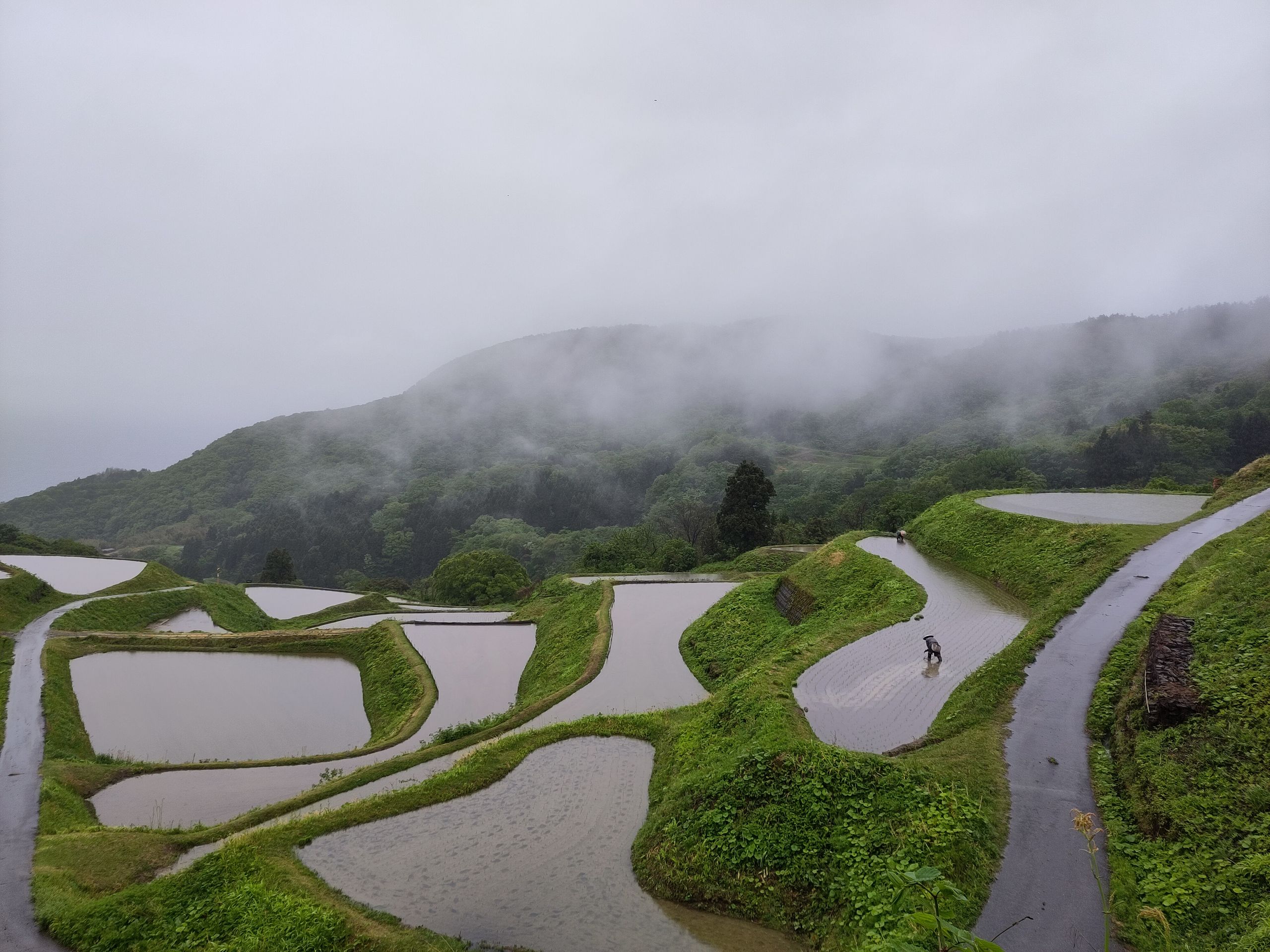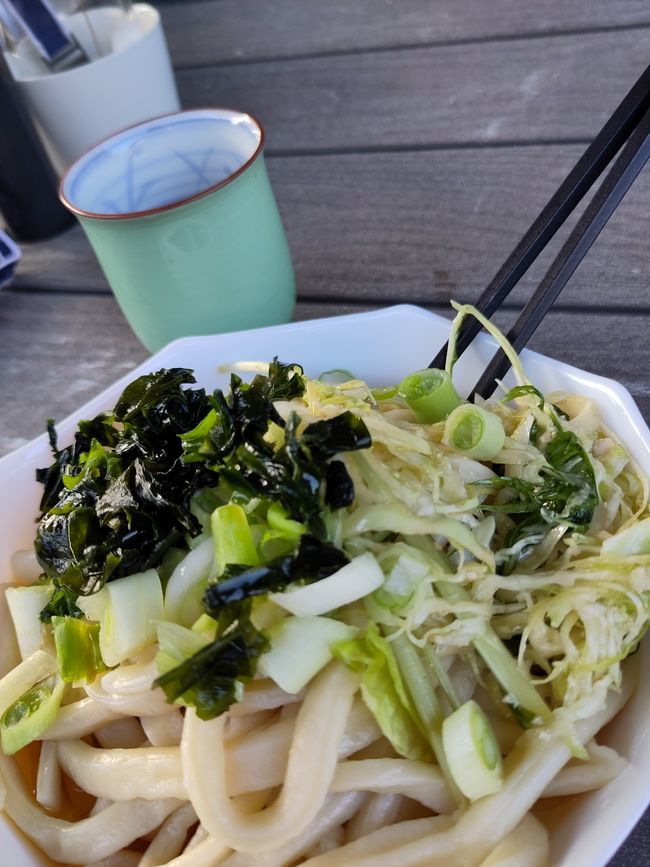
umweltcamp-in-sado-japan
vakantio.de/umweltcamp-in-sado-japan
Sado - Planting Sweetpotatoes and making Udon noodles
Oñemoherakuãva: 08.06.2023
The next lecture by Connor is about climate change. Unfortunately, I don't learn anything new this time because we constantly hear about this topic, and I think everyone knows that the situation looks pretty grim at the moment. To lighten the mood, we then make our own Udon noodles. The dough consists of only flour, water, and salt, and it is kneaded for a long time to develop a lot of gluten and make the dough nicely stretchy. To make it easier to knead, we put it in a bag and press it flat with our feet. Once it's flattened enough, we fold it and knead it again. This process is repeated a few times, and then the dough has to rest for some time. To pass the time, we drive to a village in the afternoon where there are many abandoned rice fields. There simply aren't enough people to take care of all of them. However, to prevent the fields from standing completely empty, other vegetables are sometimes planted on them. Together with a few elementary school children, we plant sweet potatoes in the prepared beds. We distribute the seedlings to the children, who then plant them. Unfortunately, not all fields can be planted with vegetables, so we scatter flower seeds on the remaining ones to make them look beautiful in the summer. After the children have taken the bus back, we have a conversation with the mayor of the village. He tells us about the history of the area and how there was almost a time when rice couldn't be grown in the Ogi area. The reason was that they couldn't find fresh water to fill the rice fields. In his dramatic narration, on the very last day, they finally found water. They had dug a horizontal hole and discovered a water reservoir trapped by volcanic rocks. Even though none of us directly understand what he's talking about, his enthusiasm in his voice keeps us captivated. On the way back, we, of course, make our usual stop at the Tayaki shop, and this time I finally try the Anko with walnut version
Mbohovái

